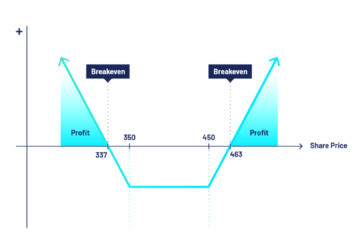Cryptocurrency has come a long way since its early days, growing into a massive global market worth over $2 trillion in 2024. With so many different cryptocurrencies and platforms out there, competition is fierce. But what does all this competition mean for international trade in crypto, and what role does competition play in international trade as a whole? In this blog, we will explore how competition influences the crypto market and what it means for people and businesses involved in trading these digital currencies across borders.
The Global Crypto Market
As of 2024, there are more than 24,000 different cryptocurrencies being traded around the world, with a total market value of over $2 trillion. Every day, over $100 billion worth of crypto changes hands. Major cryptocurrencies like Bitcoin and Ethereum are leading the charge, making up a large portion of this market and playing a big role in international trade by offering fast and cost-effective ways to do business globally.
How Competition Drives Innovation
Competition in the crypto world pushes companies and developers to come up with new ideas and better technologies. This innovation is crucial for keeping ahead in the global market.
- Better Blockchain Technology: The competition to build faster, more secure, and scalable blockchains has led to significant improvements. For example, Ethereum’s upgrade to Ethereum 2.0 aims to make transactions quicker and more secure. As a result, Ethereum’s network now handles over 1.2 million transactions every day more than double what it did just a few years ago.
- More Choices for Users: The intense competition has led to a wide variety of cryptocurrencies being available, each designed for different purposes. Stablecoins like Tether and USD Coin, which together are worth over $130 billion, provide a stable way to trade internationally. Meanwhile, privacy-focused coins like Monero are popular where transaction secrecy is important.
- New Financial Services: The rise of decentralized finance, or DeFi, is a direct result of competition. The DeFi market is now worth over $80 billion and offers services like lending, borrowing, and trading without needing banks. This makes it easier and cheaper for people around the world to engage in financial activities, including international trade.
The Impact of Competition on Regulations
As crypto grows, governments are racing to create regulations that manage risks while encouraging innovation. How different countries regulate crypto can create competitive advantages or disadvantages in the global market.
- Regulatory Arbitrage: Countries with crypto-friendly regulations attract more businesses. For example, Singapore has become a major hub with over 200 blockchain companies operating there. On the other hand, places like China, with strict rules, have seen many crypto companies move elsewhere.
- Global Cooperation on Rules: International organizations like the Financial Action Task Force (FATF) have set guidelines for regulating crypto, which influence over 200 countries. Japan, for example, has implemented strong regulations, making it a leader in the crypto market with over $10 billion in trading volume each year.
- Effect on Trade Policies: Countries with strict regulations, like the United States, may see slower adoption of certain crypto products, which could put them at a disadvantage in the global market. Meanwhile, places like Malta, which has more relaxed rules, are becoming popular destinations for crypto businesses.
Market Access and the Role of Competition
Competition also determines which cryptocurrencies and platforms become popular globally. Access to these markets is crucial for international trade. When is the Best Time to Trade in Crypto in a Car?
- Exchange Competition: There are over 500 crypto exchanges globally, with big names like Binance and Coinbase leading the way. Binance, for instance, handles over $70 billion in transactions every day. This competition leads to better trading platforms, lower fees, and more secure transactions, which are all beneficial for international trade.
- Cross-Border Transactions: Cryptocurrencies have made cross-border transactions much faster and cheaper. Ripple’s XRP, for example, can process international payments in just a few seconds with minimal fees, making it a popular choice for global trade.
- Challenges for New Players: While competition improves market access. It can also make it hard for new cryptocurrencies to gain traction. Major exchanges control over 90% of global trading volume, so getting listed on these platforms is crucial but challenging for newcomers. Additionally, countries with restrictive regulations, like India, face difficulties fully participating in the global crypto market.
Economic Effects of Competition in International Crypto Trade
The competition in the crypto market doesn’t just affect the companies involved—it also has broader economic implications.
- Impact on National Economies: Countries that lead in the crypto space can attract more trade and investment. Switzerland, for example, has attracted over $2 billion in crypto investments, boosting its economy. On the flip side, countries that fall behind in crypto adoption may miss out on these economic benefits.
- Competition with Traditional Currencies: Cryptocurrencies are competing with traditional money, challenging the control governments have over their national economies. For example, Tether, a stablecoin, is used in international trade more frequently and has a daily transaction volume exceeding $50 billion, which is on par with major traditional currencies.
- Wealth Distribution: While crypto can make financial services more accessible. The competitive market has also led to wealth being concentrated among a few. A study found that 2% of Bitcoin wallets hold 95% of all Bitcoin, raising concerns about inequality in the crypto world.
What the Future Holds
Looking ahead, competition will continue to shape the future of international crypto trade. Here are some trends to watch:
- Consolidation vs. Decentralization: We might see a few big players dominate certain areas like exchanges and payment networks. However, the crypto community values decentralization, so this could lead to ongoing competition and innovation. For instance, decentralized exchanges (DEXs) could account for 30% of global trading volume by 2025.
- Central Bank Digital Currencies (CBDCs): Governments are developing their own digital currencies, which could compete with private cryptocurrencies. Over 80% of central banks are working on these, with the Digital Yuan already being tested for cross-border transactions in Asia.
- Evolving Regulations: As competition pushes innovation, it will also drive the development of new regulations. The European Union, for example, is working on a set of rules for cryptocurrencies that could set a global standard.
- New Players Entering the Market: The ongoing competition will attract new entrants, including traditional banks and tech companies. In 2024, major financial institutions like JP Morgan and Goldman Sachs are already investing heavily in crypto, with combined investments exceeding $10 billion.
Wrapping Up
Competition plays a huge role in the world of international crypto trade. It drives innovation, shapes regulations, and impacts the global economy. As the crypto market continues to grow and evolve, understanding the role of competition will be key for businesses, investors, and policymakers who want to navigate this exciting space and seize the opportunities it offers. Which Three Elements Are Required To Have A Trade Secret




